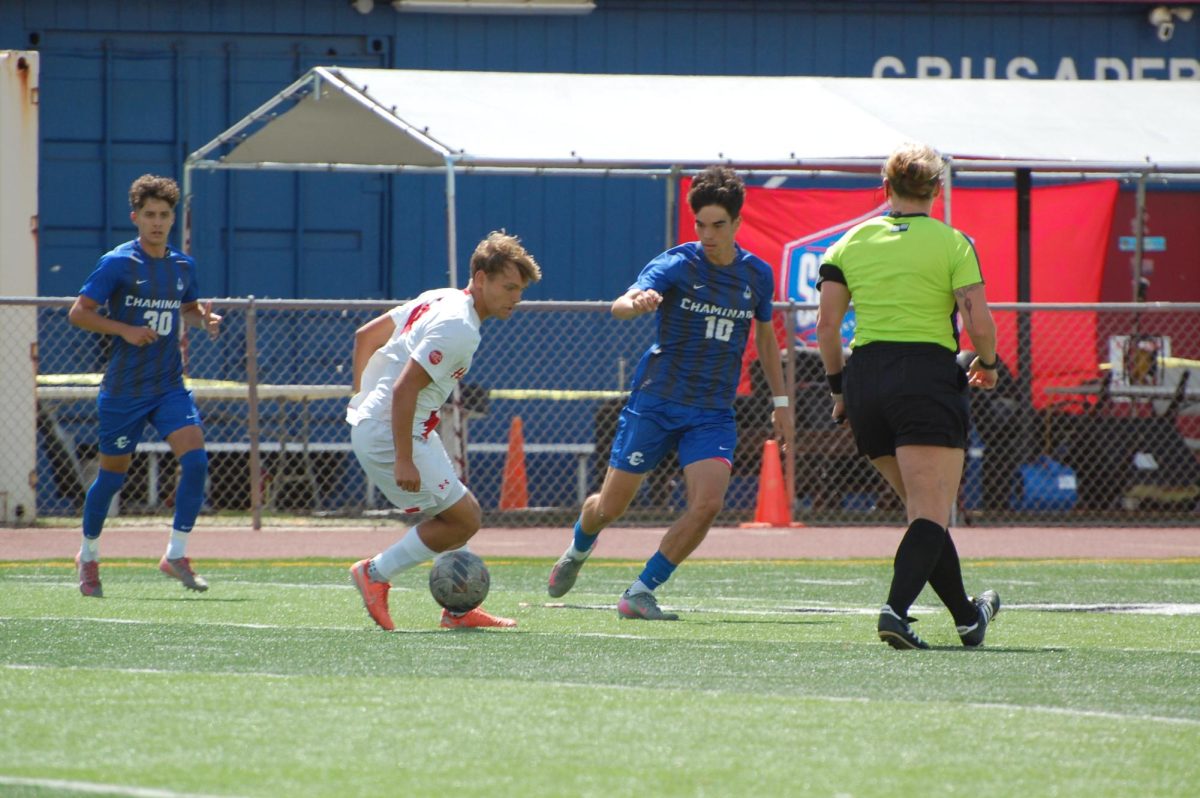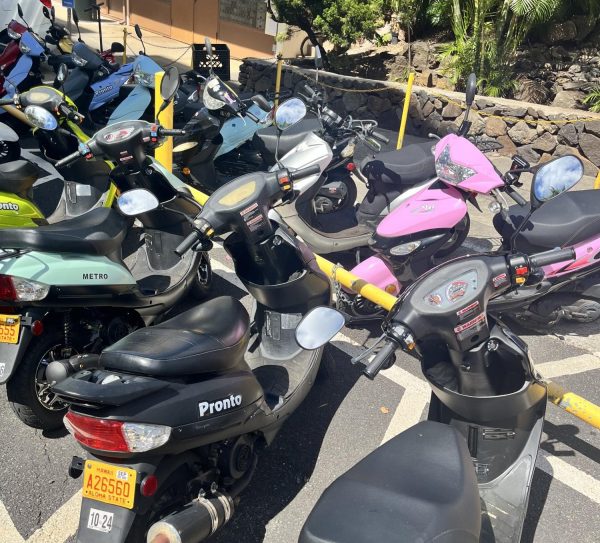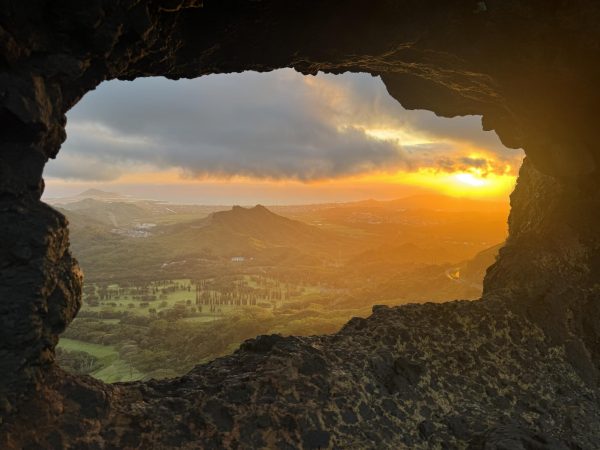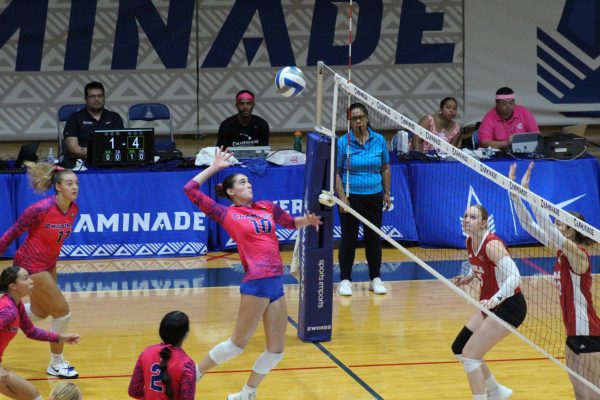‘Eo, A voice needed
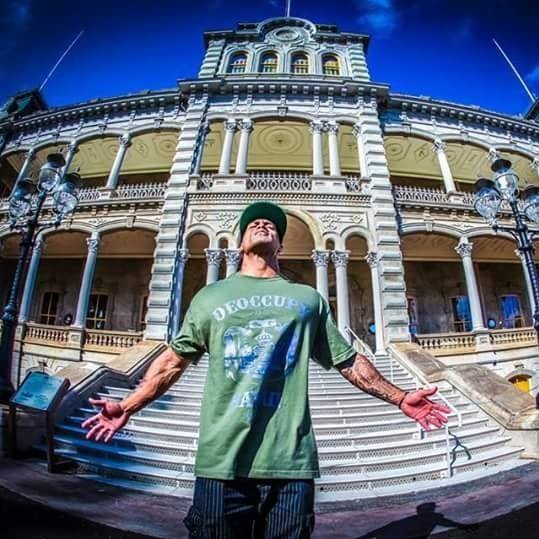
The Hawaiian culture is a part of the daily lives for the Kanaka Maoli. Hawaiians find pride in their traditions and language, ‘Ōlelo Hawai’i.
November 26, 2016
Museums that commemorate people and their culture are found all over the United States.
On Sept. 24, the Liberty Bell from one of the oldest African American churches in America was rung by President Barack Obama to welcome the opening of the first African American Museum in Washington, D.C. In 1993, the Holocaust Museum opened its doors to expose the truth behind one of the most horrific massacres of the 20th century. Native Americans have a museum in both Washington, D.C. and New York. The Washington, D.C. museum was established in 2004, a long time from the original persecution of these native people. It was created to both remedy and commemorate the harsh truth of bloodshed of the Native Americans on their own soil. Many other cultures are represented through museums across the U.S. and in the capitol at Washington, D.C.
Yet, the Hawaiian people, the Kanaka Maoli, have no memorial for what was done to their sovereignty, to their nation. Maybe we have failed to recognize what happened because it’s too soon for America to acknowledge what happened to those who fought for the sovereignty of their people, or maybe it was a largely peaceful annexation (with few fatalities) on Jan. 17, 1983, the day the Hawaiian monarchy was overthrown and Hawai’i was annexed. Whatever the case, the Hawaiian people deserve to have their own history commemorated. It is past due for there to be a Hawaiian centric museum here in Hawai’i.
The lifestyle, livelihood, and social and cultural structure of the people before they were exploited for both themselves and resources went unnoticed by the public. What is it going to take for America to acknowledge what was once lost based on a system run by greed? It’s time for the Hawaiians to get that recognition.
With the annexation occurring over a century ago, America has had enough time to think about a remedy for its unfortunate decision, the annexation of the Hawaiian monarchy. The past is the past and we want to move forward, but if the Hawaiian people were overtaken and given no choice or say to their government and cultural practices than now is the time for the American government to fund a Native Hawaiian museum. The fact that America has reluctant on doing this for the Hawaiian people, probably is why the majority of the mainland thinks Hawaiians still live in grass huts. It is America’s job to own up to their truths that they have for many other races they have exploited throughout its history. If not now, then when? And when must be now.
“People in America or people that don’t understand our culture necessarily, who don’t understand what our people went through in terms of the overthrown and the annexation,” said Kahiau McKeague, Hawaiian Club president at Chaminade University. “I think it is important for us as Hawaiians to revive our culture and to verbally perpetuate just so we can pass it down through generations.”
The Hawaiian language (‘Ōlelo Hawai’i) was taken from its people in 1896 and banned. To take away the language of its people is to take away its voice. Most of the bans placed on Hawaiians were not lifted until 1980 or even the 1990s. Harder to believe yet it is the truth that a country like America, which emphasizes its value in freedom and does so through the Constitution, dishonored the cultural practices and religions of the nations they conquered. Maybe this is due to America’s thought that it was saving the native people of those lands from a barbarian lifestyle.
According to the culturalsurvival.com and Hawaiian nationalist and educator Haunani Kay-Trask, the Hawaiian people make up less than 20 percent of the population here in the Hawaiian islands, and it continues to decrease with time. Years from now, the Hawaiian population will be drastically diminished. In many years we might not be here. Without native Hawaiians, our culture and the knowledge of our people will be sadly lost. Without acknowledgement from the United States government, the Hawaiian people will become only a past thought, a legend. My people and my culture deserve better.
“I would personally want it to start at home especially with cultural practices just kind of living in the Hawaiian lifestyle and mindset,” McKeague said. “With education, more schools to start Hawaiian and integrating Hawaiian practices. I’m a hula dancer so that’s something else that would be cool. The language and maybe hula and different stuff like that. On a bigger scale, it would be more schools that are focused on Hawaiian practices and Hawaiian ways.”
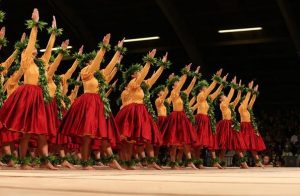
Hula is one of the many ways the Hawaiian people communicate and express their aloha for their culture.
Bishop Museum located here on O’ahu is home to many Hawaiian artifacts and cultural pieces but yet is not a solely Hawaiian museum. There is a Pacific Exhibit as well as other featured cultures within it. Hawaiians deserve a museum of their own.
For Hawaiians such as Kumu Keahi Renaud, he worries about how other Hawaiians feel about a Native Hawaiian museum, whether they would be overjoyed with the possibility of seeing their culture presented to the states and to the world in this manner. Some practicing Hawaiians feel negatively toward a museum. With a museum comes many displays of what Hawaii once was and today still is, a living, breathing, and very much alive culture. The Hawaiian culture, though, does have many practices and tradition that have been lost of the centuries, but it lives on through the Keiki O Ka ‘Āina (the children of the land). What the Hawaiians have accomplished over the years in government and society should not be lost by the thought of a dead culture.
“A museum would be beneficial in the knowledge and forthright of our culture,” said Pohaikealoha Artates, alumna of Kamehameha Schools Maui. “It will be promoting a culture that is very much alive or as one that is dead and silent. (I stand in a position of keeping historical hawaiian artifacts at home, although, we, Native Hawaiians need to also have recognition in this world. It is very controversial, but we need a voice somewhere for us.”
Despite all the issues brought up by the Hawaiian people, a museum would be beneficial to increase the understanding and knowledge of the Hawaiian people. The mana of the Hawaiian people will always be strong, but a museum would exemplify a living culture to the rest of the world. Kumu Keahi Renaud, a Hawaiian Studies professor at Chaminade University, explained his thoughts on the ideas of a Hawaiian museum.
“When we speak of museums, the living museum I think is what we need to embrace,” he said, “because if we archive something than we speak of it as the past that is gone. As Hawaiians, (Kumu Keahi’s mentor) Kumu Lake says, ‘What are we as Hawaiians if we’re not exercising those things that are uniquely Hawaiian in culture, in perception, in understanding, in knowledge?’ And a museum can be part of that as part of those resources.”
As a Hawaiian woman and a haumana (student) of hula, I acknowledge the fact that there is more to our Hawaiian culture than is easily accessible. The line between what we must keep sacred and preserved and what we must share to educate is very thin. Even with all the of this, I feel it is imperative that we as a people use our voices for a museum in the states and even more so at the capitol in Washington D.C. Many Hawaiians don’t want to be associated with the states but I believe we must use this platform to show our culture and our mana to the United states to remind them we are an individual nation and people within another nation.
On Nov. 28, 1843 Hawaiians celebrate the great day when France and Great Britain acknowledged us as an independent state. This is our true independence day or known as “La Ku‘oko‘a.” Forever we stand in unity and perpetuate our culture.
